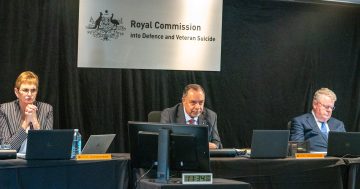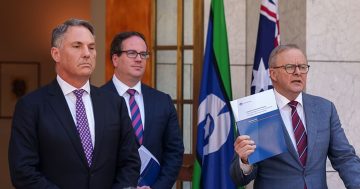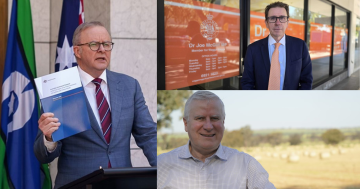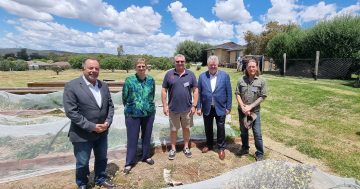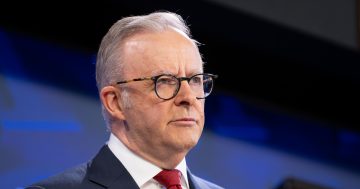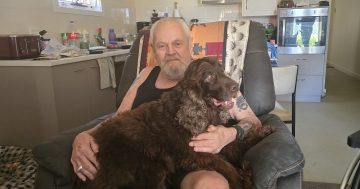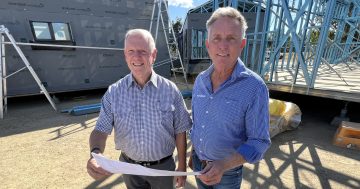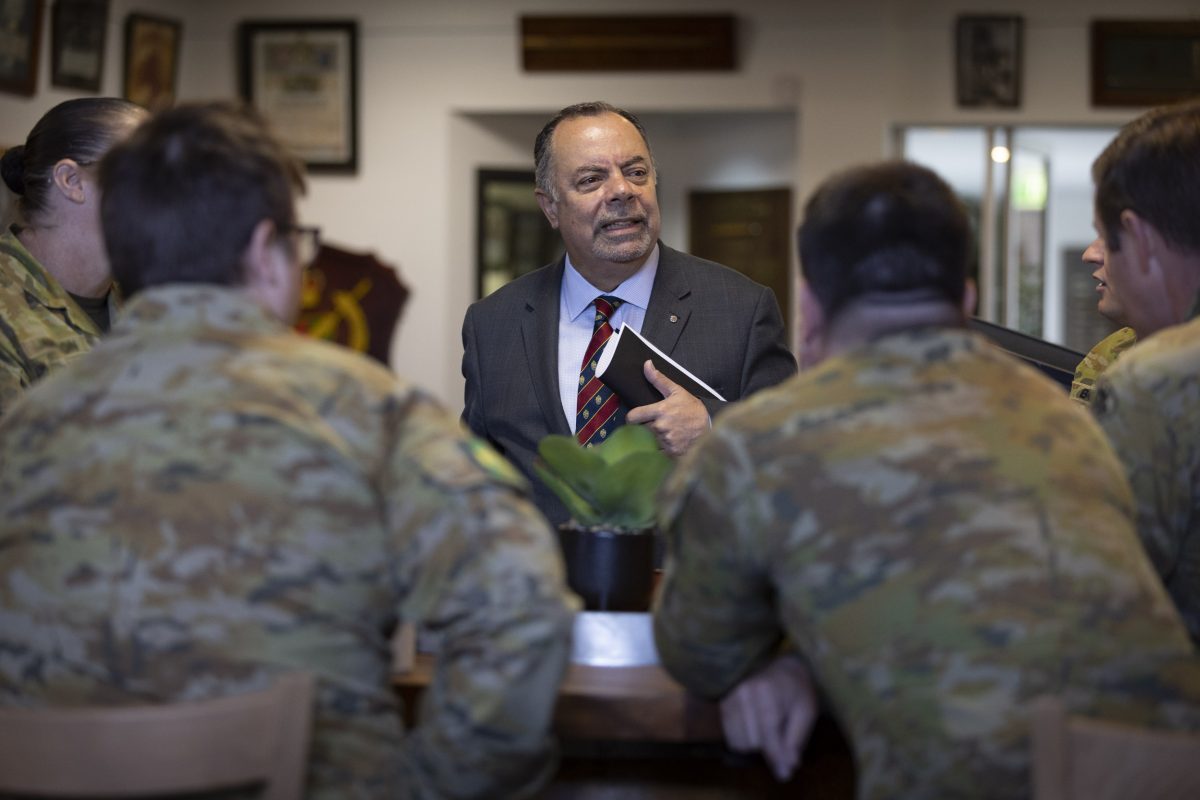
Royal Commission into Defence and Veteran Suicide Chair Nick Kaldas visits the army’s First Recruit Training Battalion at Kapooka before the first hearing on Monday. Photo: Royal Commission into Defence and Veteran Suicide.
The Royal Commission into Defence and Veteran Suicide’s four days of hearings in Wagga have come to an end, with Commission Chair Nick Kaldas in his closing statement thanking the witnesses who had bravely shared their stories with the public.
“We honour all of the lived experience witnesses who have shared their stories with us in this public forum,” Commissioner Kaldas said.
“Their strength, courage and ability to recount often harrowing and distressing details has been profound and inspiring.
“Their testimony has proved invaluable to our understanding of the issues at the centre of our inquiry and we sincerely thank them all for speaking to us.”
He said the information provided by the witnesses would help inform the final report.
Commissioner Kaldas said the commission wouldn’t stay idle until the next hearing in May.
“We anticipate releasing a number of key discussion papers in the coming months and a special report in the third quarter of 2023,” he said.
“We will be progressing our research efforts and in line with our terms of reference, we will also be looking to New Zealand and the United States, to hear about their efforts and best practice in relation to the complex challenge of Defence and veteran suicide.
“Work on our final report will also be progressing.”
The Commissioner said the Government had begun implementing some of the commission’s recommendations from the release of their interim report in August.
“Extra resources and staffing have been allocated to the Department of Veterans Affairs to begin work in reducing the number of outstanding claims,” he said.
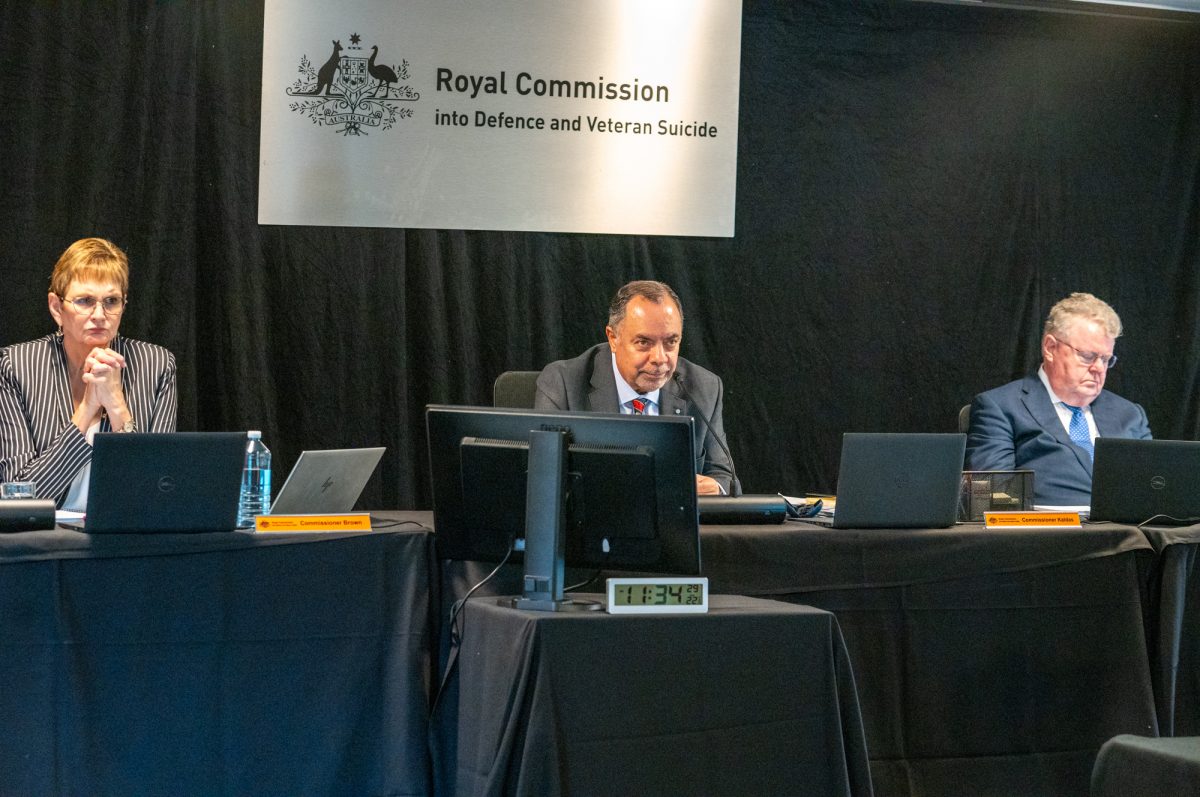
Commissioners Peggy Brown, Nick Kaldas and James Douglas at the Wagga hearing on Monday. Photo: Royal Commission into Defence and Veteran Suicide.
“The Government has also committed to addressing other issues including simplifying and harmonising legislation.
“Work is also happening in other quarters, stimulated by the work of this commission. For example, the National Ex-Service Organisations Forum held in Canberra saw over 70 ESO’s agree to collaborate towards advancement in their sector.”
The Commissioner said despite seeing the progress so far the commission still “remains concerned about deficiencies in response to notices for the giving of information and the production of documents from Commonwealth government departments, including Defence.”
“Delays in the delivery of documents vital to our examination of witnesses have been frustrating and have undoubtedly impeded the work of this commission,” he said.
“We have seen further examples at this hearing of the impact that the application of parliamentary privilege has had on our inquiry.
“But we continue to hope that the Commonwealth will work together with the royal commission to expedite a resolution to these ongoing complex matters.”
The Commissioner said: “Bringing about real change to the issue of suicide and suicidality among serving and ex-serving Defence members will take a sustained and determined effort over time, beyond the life of this royal commission.”
“It is a difficult task but not an impossible one.”
He said the navy, army and air force would not be able to attract and retain the personnel they urgently needed without addressing fixing the problems in recruitment, training, culture, service life, transition and discharge, and other risk factors that had been identified, and without improving engagement around the issues experienced by families of ADF personnel.
“We remain committed to ensuring a brighter future for all of those involved in the Defence and veteran communities and welcome any opportunity to work with key stakeholders in a collaborative way to achieve our common goals,” he said.
So far, the public hearings have been held in Sydney, Canberra, Townsville, Darwin, Brisbane and Hobart, and the commission has heard from more than 230 witnesses, received 2900 submissions and held more than 250 private sessions.
The royal commission has also been involved in a number of community engagement activities and roundtable meetings, and the staff have spoken to countless serving members about issues during the visits to 14 military bases around the country.
The royal commission’s next public hearing will start in Perth in May and move on to Adelaide and Melbourne.
If this story has raised any issues for you, please contact Lifeline on 13 11 14, Suicide Call Back Service on 1300 659 467, the Defence all-hours Support Line 1800 628 036, Open Arms 1800 011 046 or Soldier On 1300 620 380.







